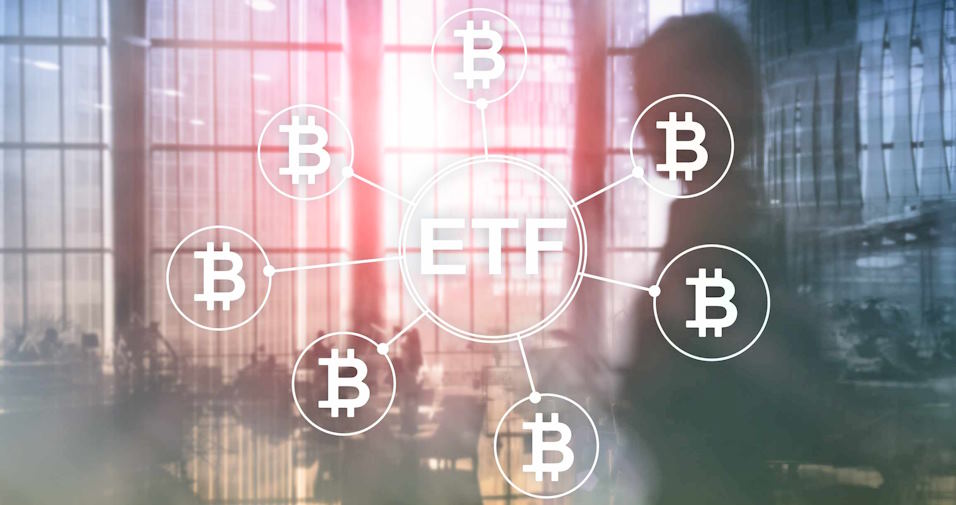The Impact of Cryptocurrency ETFs on the Market and Investors

Cryptocurrency Exchange-Traded Funds (ETFs) have emerged as a revolutionary force in the world of finance, bridging the gap between the traditional investment sphere and the rapidly evolving realm of digital assets. As vehicles that offer investors exposure to a diversified portfolio of cryptocurrencies, Cryptocurrency ETFs have captured the attention of both seasoned investors seeking new avenues for growth and newcomers looking to step into the dynamic world of cryptocurrencies. By analyzing their implications for market accessibility, price stability, and mainstream acceptance, as well as considering the opportunities and challenges they present to investors, we uncover the transformative power of Cryptocurrency ETFs and explore how they reshape investment paradigms.
Market Impact of Cryptocurrency ETFs
The introduction of Cryptocurrency Exchange-Traded Funds (ETFs) has heralded a transformative era in the financial landscape, triggering a series of significant market impacts that reverberate across traditional and digital asset realms.
Increased Accessibility and Exposure
- Opening Cryptocurrency Market to Traditional Investors: Cryptocurrency ETFs have dismantled the barriers that once isolated traditional investors from the captivating world of digital currencies. These funds provide an accessible avenue for investors to indirectly participate in the cryptocurrency market, utilizing familiar investment channels without navigating the complexities of digital wallets and exchanges.
- Potential for Increased Retail Participation: The advent of Cryptocurrency ETFs has the potential to drive a surge in retail participation. As these funds align with conventional investment methodologies, they resonate with a broader investor base, fostering a new wave of interest and engagement with cryptocurrencies among retail investors.
Liquidity and Price Stability
- Effects on Underlying Cryptocurrency Markets: Cryptocurrency ETFs inject a dose of liquidity into the underlying markets. As these ETFs accumulate a diversified portfolio of digital assets, they contribute to stabilizing trading volumes and reducing the risk of large price swings, which is a common concern in the cryptocurrency space.
- Mitigating Extreme Price Volatility: The inherent volatility of cryptocurrencies has often deterred traditional investors. Cryptocurrency ETFs, by virtue of their diversified composition, can help mitigate extreme price volatility. Their structured approach cushions the impact of price fluctuations, offering a more stable investment option.
Investors’ Perspective: Opportunities and Challenges
Navigating the realm of Cryptocurrency Exchange-Traded Funds (ETFs) opens a spectrum of opportunities and challenges for investors, requiring a nuanced approach that balances the allure of potential returns with the pragmatism of risk management.
Diversification Benefits
- Integrating Cryptocurrencies into a Balanced Portfolio: Cryptocurrency ETFs offer investors a gateway to diversify their investment portfolios. By including digital assets alongside traditional holdings, investors gain exposure to an asset class that often behaves independently of traditional markets, potentially enhancing overall portfolio resilience.
- Potential Risk Reduction through Diversification: The volatile nature of cryptocurrencies is well-documented. Cryptocurrency ETFs, constructed with a diverse array of digital assets, can help temper the impact of price fluctuations. This diversification has the potential to mitigate the risk associated with investing in any single cryptocurrency.
Risk Factors and Volatility
- Cryptocurrency Market’s Inherent Risk Profile: Cryptocurrency markets are renowned for their rapid price fluctuations. While these price movements present opportunities for significant gains, they equally underscore the importance of diligent risk assessment. Investors must be prepared for the inherent volatility of the asset class.
- Balancing Potential Returns with Increased Risk: The allure of high returns in the cryptocurrency space is coupled with heightened risk. Cryptocurrency ETFs encapsulate this dynamic, providing investors exposure to potential gains, while the diversified structure cushions against the most extreme price swings, striking a balance between potential returns and risk.
Comparing Cryptocurrency ETFs with Traditional Investment Vehicles
In the ever-expanding landscape of investment options, the emergence of Cryptocurrency Exchange-Traded Funds (ETFs) has sparked a compelling debate regarding their distinct features and their relative appeal when measured against traditional investment vehicles.
Contrasting Features of Cryptocurrency ETFs and Traditional ETFs
Cryptocurrency ETFs stand out against their traditional counterparts due to their underlying assets – digital currencies. While traditional ETFs are rooted in stocks, bonds, and commodities, Cryptocurrency ETFs provide exposure to a realm defined by blockchain technology and decentralized finance. This contrast not only diversifies investment portfolios but also introduces investors to an entirely new dimension of potential growth.
Analyzing Risk-Return Profiles Against Stocks, Bonds, and Other Assets
Cryptocurrency ETFs present a unique risk-return profile when compared to traditional investment vehicles. Cryptocurrencies’ high volatility and potential for explosive gains contrast with the relatively stable but often slower growth of traditional assets like stocks and bonds. Investors seeking rapid appreciation may be drawn to Cryptocurrency ETFs, but they must navigate the associated risk of sharp downturns.
Factors Influencing Investor Preference Between Different Investment Options
Investor preference between Cryptocurrency ETFs and traditional options hinges on several factors. Risk appetite plays a pivotal role; those comfortable with higher risk may find the allure of digital assets compelling. Market familiarity also weighs in, with investors more accustomed to traditional markets possibly leaning toward conventional ETFs. Additionally, time horizon, diversification goals, and regulatory sentiment are critical determinants influencing the choice between these investment vehicles.


